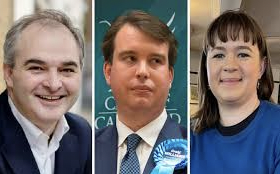Four people have been embroiled so far: 2 candidates, the party’s campaign director and a police officer
The UK Conservative party’s election campaign has been thrown into disarray by a series of allegations about bets placed on a July election shortly before Rishi Sunak made the surprise announcement last month. So far four people have been embroiled in the scandal: Tory candidates Craig Williams and Laura Saunders; campaign director Tony Lee — who is married to Saunders; and an unnamed police office who was in Sunak’s bodyguard unit. A large number of bets were placed shortly before Sunak’s May 22 announcement of the election, the Financial Times reported on Thursday, while the Gambling Commission, the betting industry regulator, is investigating how widespread wagers were among people with insider political knowledge. How did the investigation start? Bookmakers are under an obligation to alert the Gambling Commission to any suspicious betting patterns. While the body typically investigates issues such as match-fixing in sports, its remit covers any wagers that turn out to have been placed by people with inside information. The commission’s investigation into betting on the UK election date appears to have started after bookmakers alerted it to a flurry of interest in a July election in the days before the announcement on May 22. On June 12, Williams announced he was facing some “routine inquiries” after what he described as “a flutter” on the general election date. The Gambling Commission says it is now “investigating the possibility of offences concerning the date of the election”, but has declined to say how many people it is investigating or questioning. The UK’s main bookmakers have said they are co-operating with the probe. What offences might have been involved? Betting using inside information is potentially a breach of Section 42 of the Gambling Act, which covers the offence of “cheating” and can carry a penalty of up to two years in prison, legal experts say. The section says it is an offence if someone “cheats at gambling” or “does anything for the purpose of enabling or assisting another person to cheat at gambling”.
Read their full report at
https://www.ft.com/content/475fc6ea-dca2-4c60-ad0c-a12082a6428a





